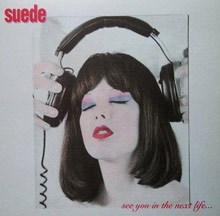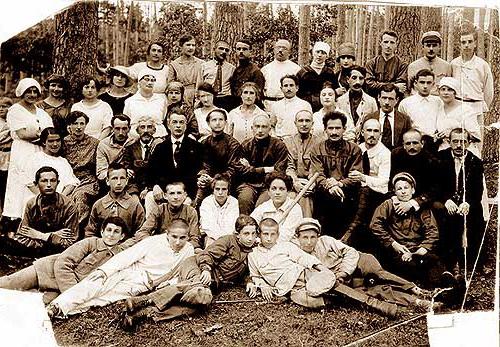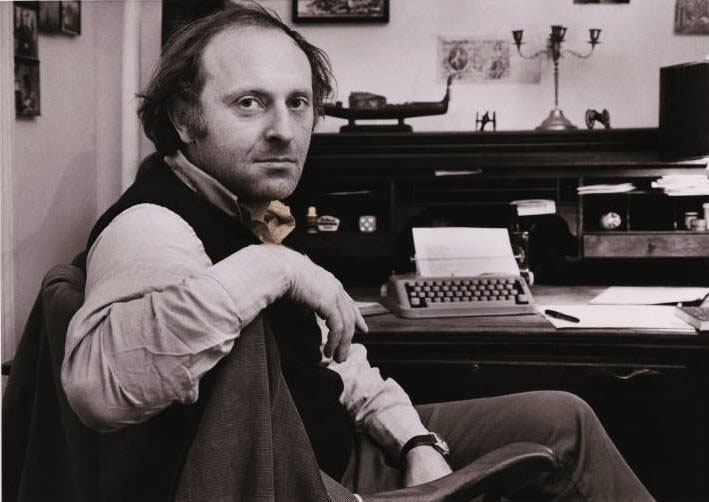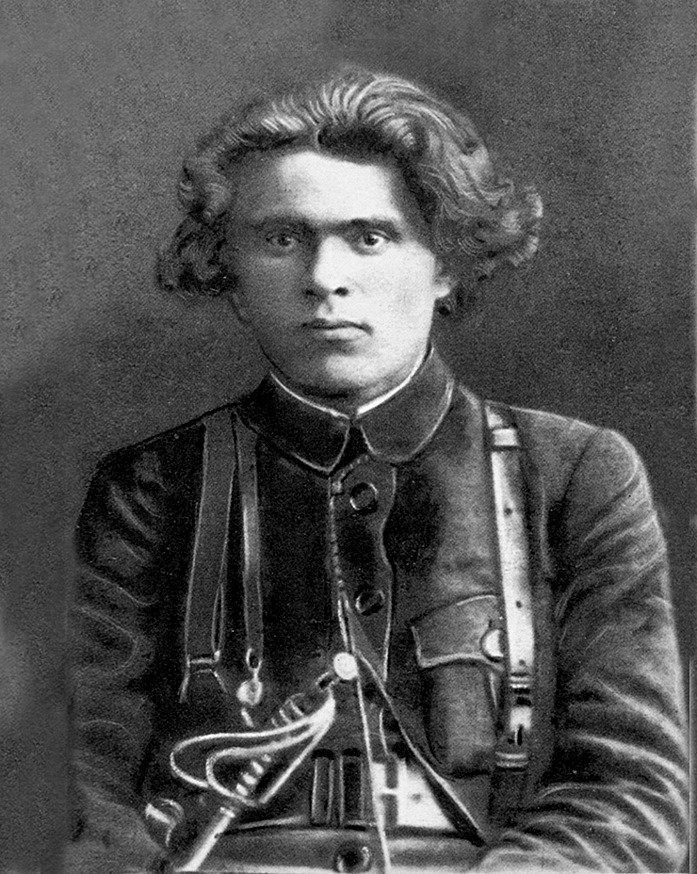The formula of pasta is simple in English. Simple past tense refers to past actions.
The variety of temporary forms in the English language allows us to describe the action in more detail, but it can also be confusing. The table “Past Simple” tells in detail about how the English Simple Elapsed Time is formed and when it is used.
Basic rule
Before moving on to the study of the affirmative, negative and interrogative forms of English past Simple, you need to understand how it is translated into Russian and what action it describes. The temporary form of Past Simple literally translates as the Simple Past. The term Past refers to the past tense in the broad sense. Simple is an aspect that indicates that the described action is ordinary and occurs regularly. It follows that Past Simple describes ordinary, repetitive actions, facts that happened in the past.
This meaning is also indicated by marker words such as yesterday (yesterday), the day before yesterday (yesterday), two weeks ago (two weeks ago), last year (last year) and others.
Regular verbs
When considering the rule of education Past Simple (Simple Past), new language concepts appear - regular and irregular verbs. Regular verbs form Past Simple with the -ed ending, which joins the stem of the verb.
Basic rules and examples of Past Simple with regular verbs are presented in the following table:
|
Past Simple Tense: subject + verb + -ed (2nd form of regular verbs) |
||
|
Positive form (Affirmative form) |
Negative form (Negative form) |
Interrogative form (Interrogative form) |
|
I closed - I closed |
I did not close - I did not close |
Did I close? - I closed? |
|
You closed -You closed you |
You did not close - you (you) did not close (s) |
Did you close? - You (you) closed (s)? |
|
He closed - He closed |
He did not close - He did not close |
Did he close? - He closed? |
|
She closed - She closed |
She did not close - She did not close |
Did she close? - She closed? |
|
It closed - He (about an animal or inanimate.) Closed |
It did not close - He did not close |
Did it close? - He closed? |
|
We closed - We closed |
We did not close - We did not close |
Did we close? - We closed? |
|
They closed - They closed |
They did not close - They did not close |
Did they close? - they closed? |
In a negative sentence, the subject is followed by an auxiliary verb with a negative particle - did not (not). The question changes the word order and the auxiliary verb comes first. In both cases, the main verb loses the past tense ending -ed.
Irregular Verbs
There are not so many irregular verbs in English - 470 pieces. Not all of them relate to the daily vocabulary. Many are outdated and not used. But the main thing is different - they must be known by heart. In order to make a sentence with an irregular verb in Past Simple, you need to look into the second column of the irregular verb table.
TOP 2 articleswho read along with this
|
Past Simple Tense: Subjects + 2nd Irregular Verb Form |
||
|
Positive form (Affirmative form) |
Negative form (Negative form) |
Interrogative form (Interrogative form) |
|
I slept - I slept |
I didn’t sleep - I did not sleep |
Did I sleep? - I was asleep? |
|
You slept - you (you) slept |
You didn’t sleep - you (you) did not sleep (s) |
Did you sleep? - Did you sleep? |
|
He slept - He slept |
He didn’t sleep - He did not sleep |
Did he sleep? - He slept? |
|
She slept - She slept |
She didn’t sleep - She didn’t sleep |
Did she sleep? - She slept? |
|
It slept - He slept |
It didn’t sleep - He did not sleep |
Did it sleep? - He slept? |
|
We slept - We slept |
We didn’t sleep - We did not sleep |
Did we sleep? - We sleep? |
|
They slept - They slept |
They didn’t sleep - They didn’t sleep |
Did they sleep? - They slept? |
What did we learn?
The basic rules and examples of Past Simple in the table help to organize the theoretical knowledge of the topic. It presents examples of the formation of affirmative, negative and interrogative forms, which on occasion can serve as an excellent "cheat sheet".
Article rating
Average rating: 4.3. Total ratings received: 23.
Past Simple is used to express past actions. The formation of an affirmative form depends on whether the verb is correct or not. Irregular verbs have 3 forms that need to be learned. If a verb belongs to this category, then the verb form 2 or V2 is taken: I woke up - I woke up, we made - we did, he sang - he sang.
Regular verbs are formed by adding –ed to the stem of the verb: they laughed — they laughed, I typed — I typed, she cleaned — she cleaned.
negative form
The formation of Past Simple in negative form occurs with the help of the auxiliary verb to do in Past Indefinite and the particle not, to which the infinitive of the semantic verb is added.
He did not write. - He did not write.
We did not make. - We did not.
They didn’t clean. “They didn't clean.”note
In the last sample, an abbreviated form of denial is shown; it is also reflected in oral speech.
Interrogative form
To ask a question, you just need to move did to the beginning of the sentence, the order of the remaining words remains the same.
Did he write? Did we make? Did they clean?
Passive design
In the passive voice, the main verb in the 3rd form or the verb with the ending –ed is put auxiliary to be in Past Simple. The table includes two collateral formulas for comparison.

Active and passive voice in Past Indefinite
Use cases
Explore the options for using Past Simple. The rules state that this time indicates events that occurred in the past. However, Past Simple Tense can be in the context of past or present. It is used in the following cases.
To express a one-time action
The event happened once in the past. Often, the time of action is indicated, usually it refers to the past time, but the Simple past tense also occurs with such circumstances of the time as: tonight, this morning, today, etc.
I only passed exams two months ago. - I passed the exams only two months ago.
I saw her in the school this morning. “I saw her at school this morning.”
The duration of the action may be implied in the situation by reference to the place of events or other related circumstances that may be expressed in Past Indefinite. The rules do not specify such options - you need to pay attention to the context itself.
She ate chocolate hearts in Paris. - She ate chocolate hearts in Paris.
He called me at breakfast to tell the last news. “He called me for breakfast to tell me the latest news.”
There are cases when there is no need to mention the time or place, because the speaker and listener understand what event they are talking about.
I didn`t understand what he said. - I did not understand what he said.
He didn`t mean to hurt her feelings. - He did not want to offend her.

Question in Past Indefinite.
To express events that occurred during a certain period
At the same time, the action itself has already ended, the period during which it took place is indicated. The time span is usually indicated by means of a circumstantial turn with the prepositions for, during and synonymous expressions.
We argued for 5 days. - We argued for 5 days.
Last year I traveled to Brazil during my summer holidays. - Last year, during the summer holidays, I went to Brazil.
To express consecutive events
Such examples can be found in the narrative.
I came there very early, then I cleaned the place and prepared everything. “I arrived there very early, then I got out and prepared everything.”
Actions in this case can be both one-time or take the entire period of time. In the latter case, prepositional phrases for, from ... to, during or phrases all night, all day, etc. can be used in a phrase.
To indicate a repeating action
In this case, as a rule, frequency circumstances are also used: never, now, often, for weeks, again, sometimes, etc.
You often reminded me of him. “You often reminded me of him.”
Sometimes he found this story too good to be true. “Sometimes it seemed to him that this story was too good to be true.”
To express continuous action
In this case, the subject is given a general characteristic.
She wore her hair in a high ponytail. - She wore a tall ponytail.
note
The verb wear can be used not only with clothes, in English you can also “wear” hair, that is, hairstyle.
He lived in Spain for 6 years and still didn’t speak Spanish quite well. - He lived in Spain for 6 years and still did not speak Spanish very well.
Instead of past continuous
To express events that are happening at the moment in the past. The past long time is not used with state verbs and is replaced in these cases by Past Simple. Examples of suggestions will help you better understand what is being discussed.
At that moment he wanted her to tell the truth. “At that moment, he wanted her to tell the truth.”
Also, the substitution of the Long Tense with the Simple can occur with certain unsaturated verbs. They can express thought processes, perceptions, feelings, emotions: remember, shine, gleam, lie, think, trust, etc. And also substitution is relevant in such cases when events are treated as facts and attention is focused on circumstances, at which they occurred.
He talked very fast, as if he had no time at all. - He spoke as fast as if he had no time at all.
The street lights went off, but the moon gleamed and he could see her window. - The streetlights went out, but the moon was shining and he could see her window.
Future event is viewed from the past
This use of time is found in indirect speech and dependent structures. It can be found in concessive clauses, as well as time and conditions; the main sentence may include Future-in-the-Past or modal verbs.
She would, if she thought it effective, lie to him. “She could have lied if she thought this would be good.”
Follow the exercises in Past Simple - describe everything that you see in the picture, using the time learned.

Exercises Past Simple.
Remember that often, applying this time, the speaker is important precisely the fact of the action and the conversation is not focused on the event, as a continuous process.
Watch the video tutorial to post:
Past Simple Tense in the general sense denotes an action that has occurred in the past.
Education Past Simple Tense
There are two types of verbs: regular (irregular) and irregular. Past simple the right verbs formed by adding in all persons the ending - edto the form of the infinitive:
to play - played; to like - liked; to start - started.
The ending -ed is pronounced [d], [t] or: played, liked, started.
Education and reading rules -ed see appendix Education and reading rules -ed
Past simple wrong verbs are not formed by the rule, such forms need to be remembered:
to write - wrote; to come - came; to smell - smelt; to drive - driven.
She would usually be happy when she returned home after a long trip - She was usually happy when she returned home after a long trip.
c) be used to / get used to
I get used to going shopping on Saturday. (cm. )
2. To express the past action that occurred in the elapsed time interval.
a) the time of the action can be expressed using yesterday yesterday, last week last week,an hour ago an hour ago, the other day the other day, on Monday Monday, in 2000 in 2000, during the holidays during the holidays, etc.:
Mary called me yesterday. Mary called me yesterday.
The other day I met Paul. The other day I met Paul.
Did not come at six o "clock. He came at six.
b) the time of the action may be expressed in the subordinate clause:
The storm began when I left home . - The storm began when I left the house.
In today's article, we will examine the topic of the formation of questions in the simple past tense. And at the same time we’ll repeat this temporary group, we will find out in what cases it is used, how it is formed and how to build affirmative sentences and ask questions in past simple.
Past simple is a simple past tense. It is the most common in English speech. We apply this time when it comes to:
- about actions in the past taking place one after another (they went for a walk, went to a cafe and ordered coffee);
- about the actions taking place in the past and which ended by today (last week they went to rest in Sochi);
- about actions that regularly took place in the past, but today they are over (last year she went to the gym daily).
Affirmative form past simple
When constructing the affirmative construction of the past tense, you need to look at how the verb changes. Verbs in English are right and wrong. Regular verbs are formed according to a single rule, ed is added to its end. For example, cook is cooked. Irregular verbs are formed without applying any rules. Each such verb in past simple has its own form of education, for example, see - saw;
Examples of structures that are formed:
- They married three years ago. They got married three years ago.
- I went to the cinema yesterday. I went to the movies yesterday.
There are a few nuances to consider before adding the –ed ending to regular verbs:
- if this part of the speech has a consonant at its end, before which there is a stressed vowel, you should double the consonant. ban - banned - prohibit. The exceptions are verbs that end in –w and –x. flow - flowed - flow.
Attention! In British English, if at the end of the verb there is - l, it doubles in any case - travel - travelled - to travel.
- if the part of speech in question has an ending –e, only –d is added to it. close - closed - close;
- if at the end of a word there is a construction from the consonant and –y, then y changes to I + ed. cry - cried - to cry.
Attention! If there is a vowel before –y, –ed is used unchanged. play - played - play.
So, the scheme by which an affirmative structure is formed in past simple:
The person who is being talked about and to whom the question is posed to the subject + the correct verb with the end ed or the 2nd form of the irregular verb.
- She moved last year. She moved last year.
How to define past simple
In order to understand when translating that we have past simple, you need to pay attention to the words past simple markers, which are hints - yesterday - yesterday, last week / month / year - last week / last month / last year, in 2015 (1977, 2002, etc.) year - in 2015, two days / month / yers ago - two days / month / year ago.
Construction example:
- They lived in USA in 1985 year. They lived in America in 1985.
Negative sentences in simple past
In order to form a negative construction, one should use the past form of the auxiliary verb do (did), the particle not, and the initial form of the semantic verb.
Construction example:
- He did not swim yesterday. He did not swim yesterday.
For ease of use, you can combine did and not. In this case, didn’t formed.
Construction example:
- We didn’t win this battle. We did not win this battle.
Interrogative sentences in past simple are built on the same principle as in other times of the simple group using the auxiliary verb Do. To construct the question in the past tense, both in oral and in written speech, the did verb should be used, which should be put first in the construction of the interrogative sentence.
The semantic verb in such sentences should be used in the initial form, and not put in the past tense. The same situation is observed when constructing a negative sentence. The –ed ending is not added. To consolidate the information received, you should once again look at the diagram and perform the exercises.
So, the general scheme:
did + the person referred to and to whom the question is posed to the subject + the verb in the initial form.
To answer the question, you need to use the auxiliary verb did. This will be a short positive response that will replace the action itself.
- Yes, they did. - Yes, they bought it.
If you need to give a complete positive answer, you should build the design as an affirmative sentence.
- Yes, they bought a new car. - Yes, they bought a new car.
In the case when it is necessary to refute the information, you can apply both a negative and a complete answer. In the latter case, it is necessary to construct the sentence as a negative construction.
- No, they did not buy a new car. - No, they did not buy a new car.
A short negative answer is constructed according to the following scheme: the auxiliary verb did + particle not, which acts as a negation.
- No, they did not. No, they did not buy.
Using special questions in the simple past tense
A special question is a question with the help of which his asker clarifies the information received. They begin with a special word.
| Question Word
Question word for past simple special questions |
Transcription
Transcription |
Translation / Explanation
Translation (subject to subject) / Explanations |
| What | What, what / about things | |
| Who | who / about person | |
| When | when / about time | |
| Where | where / about place | |
| Why | why, why / about the reason | |
| How | how / about the mode of action | |
| Which | Which the | |
| Whom | Who | |
| Whose | Whose |
The words in the table are put in the first place in the design, then the word order goes as in an ordinary question. So, the general proposal formation scheme using special questions in past simple:
The interrogative word + did + the person in question and to whom the question is posed to the subject + the verb that must be put in the initial form.
Examples:
- I bought a new guitar - I bought a new guitar
- What did you buy? - What did you buy?
An exception:
- Who bought a new guitar? - Who bought the new guitar?
You should also have an idea of \u200b\u200bhow questions are constructed with a ponytail:
- I bought a new guitar - I bought a new guitar.
- You bought a new guitar, didn’t you? “You bought a new guitar, really?”
Building a simple past tense with the verb to be
In the case when the semantic verb is not used in the text, the verb to be must be put in this place.
In Russian, interrogative and affirmative sentences differ only in intonation; in English, when forming past simple questions to be, it changes the word order.
The tables below give examples of the use of the verb to be in the past simple tense.
negative form
Affirmative design with exercises
Question form past simple, consisting of a general question
| Design | past simple examples | ||||
| Was | I | - Was I on holiday? I was on vacation? Was he an actor? Was he an actor? Yes, he was./No, he wasn’t. Was she married? She was married? Yes, she was./No, she wasn’t. Was it too late? Was it too late? Yes, it was./No, it wasn’t. |
|||
| Were | we | - Were we at the airport? Have we been to the airport? Yes, we were./No, we weren’t. Were you there? You were there? Yes, you were./No, you weren’t. Were they happy? They were happy? Yes, they were./No, they weren’t. |
|||
Interrogative form using special interrogative words
So, today's lesson has come to an end. To consolidate information, you should perform exercises. In fact, questions in past simple time are straightforward if you learn the topic. And tables with examples will help you with this.
Affirmative form
Subject + Infinitive without to with -ed ending (form Past simple irregular verbs)
1. The lesson finished 5 minutes ago - The lesson ended 5 minutes ago.
- finished - infinitive finish + ending -ed
- ago (ago) - an adverb indicating the use of Past Simple
2. I invited them to the party - I invited them to the party (before).
- invited - infinitive invite + ending -ed
3. She paid for the tickets last week - She paid for tickets last week.
- paid - Past Simple form wrong the verb pay
- last week - indicates the use of Past Simple
negative form
Subject + did + not + Infinitive without to
1. I did not buy any milk yesterday - Yesterday I did not buy milk.
- not - negative particle
- buy - infinitive without to
2. My friend did not pick me up - My friend did not call for me.
- did - auxiliary verb to do in the form of Past Simple
- not - negative particle
- pick up - infinitive without to
3. Last summer they did not go on holiday - Last summer they did not go on vacation.
- did - auxiliary verb to do
- not - negative particle
- go - infinitive without to
Interrogative form
did + Subject + Infinitive without to
1. Did they sing that funny song? “Did they sing that funny song?” (general question)
- first
- sing - infinitive without to
2. Did you teach her to read? “Did you teach her to read?” (general question)
- did - the auxiliary verb to do in the form of Past Simple stands on first place for education issue
- teach - infinitive without to
3. Why did she stop visiting you? “Why did she stop visiting you?” (special question)
- did - auxiliary verb to do stands after the question word why and before subject to
- stop - infinitive without to
# 2 Cases Past Simple
1. To express an action that occurred at a certain point in the past. Used with the following words and phrases: Yesterday - yesterday, last week (month, year, etc.) - last week (last month, year, etc.), a week ago (an hour ago, a year ago, etc.) - week (hour , a year ago, the other day - the other day, in 2014 - in 2014, and some others.
- Someone knocked at the door half an hour ago - Someone knocked on the door half an hour ago.
- It snowed yesterday - It was snowing yesterday.
The time taken to complete the action can also be expressed subordinate clause.
- I noticed him when he called my name - I noticed him when he called me by name (when he called my name).
- My brother learns to swim when he was on holiday - My brother learned to swim when he was on vacation (when he was on holiday - subordinate clause).
2. For expression a number of past actions in the order in which they occurred.
- They opened the door and entered the house - They opened the door and entered the house.
- We went to the cinema, watched a film, then popped to a cafe and grabbed a couple of drinks - We went to the cinema, watched a movie, then popped into the cafe and got a couple of drinks.
3. For expression ordinary, repeated actions in the past.
- When my sister was little she cried every day - When my sister was little, she cried every day.
- At my previous workplace we had a staff meeting every Friday - At my previous work meetings for employees were held every Friday.
# 3 Verb TO BE in Past Simple
Bound verb TO BE It has two forms in Past Simple:
- was (used with nouns or pronouns in the form of the 1st or 3rd person singular);
- were (used with nouns and pronouns in the form of the 1st, 2nd and 3rd person plural).
- I was very busy yesterday - Yesterday I was very busy.
- They were in Rome in 2010 - They were in Rome in 2010.
In education negative and interrogative sentences with the conjugated verb TO BE auxiliary verb did not used.
- Was she in the office last Monday? “Was she in the office last Monday?”
Did she be in the office last Monday? - Were you tired? “Were you tired?”
Did you be tired? - The weather was not so nice as last time - The weather was not as good as last time.
The weather did not be so nice as last time - Probably they were not at home when you came - Perhaps they were not at home when you arrived.
Probably they did not be at home when you came
# 4 Regular and irregular verbs
When using Past Simple, special attention should be paid to the formation of forms of the semantic verb. In English, verbs are divided into the right ones and wrong.
TO right verbs include those verbs that form Past Simple tense by adding the -ed ending to the stem of the verb. TO wrong Verbs include verbs that form Past Simple tense in other ways.
- She cut her finger when she was cooking dinner - She cut her finger when preparing dinner.
- Everyone stood up when the teacher entered the classroom - Everyone stood up when the teacher entered the classroom.






